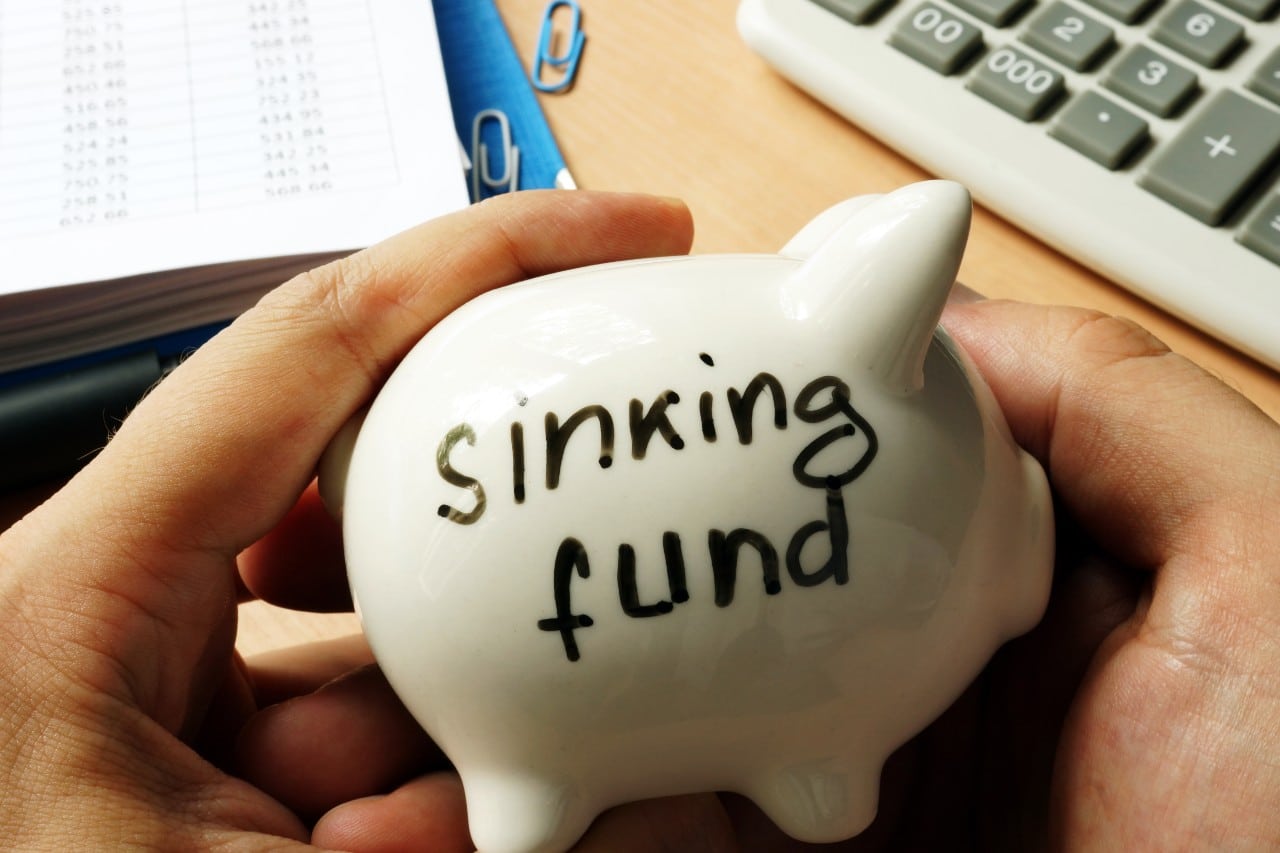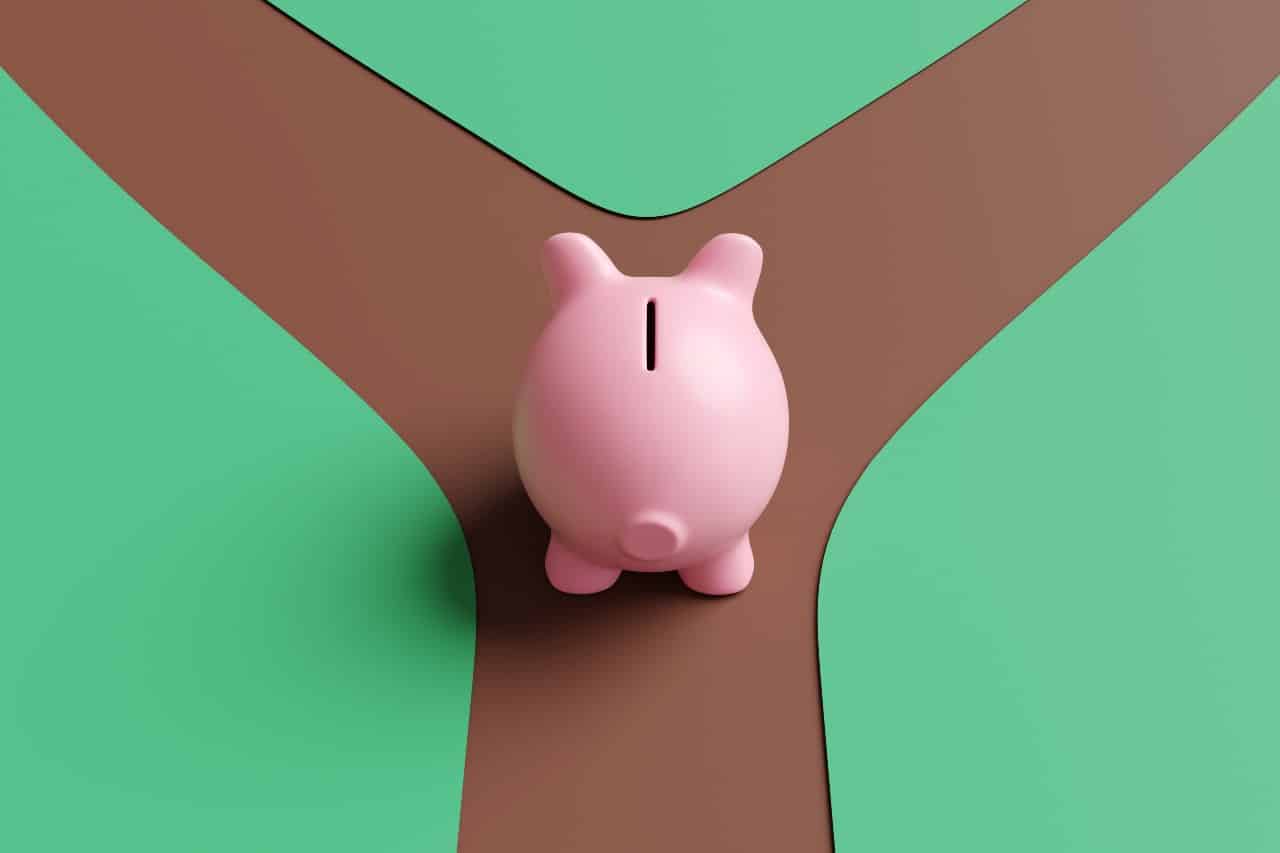If you want to know how to pay back student loans, you’re not alone. The average Canadian student owed $28,000 on a bachelor’s degree upon graduation.
In this article, we’ll look at ways to get financially ready for college and university as well as paying off your student debt once you graduate. We’ll look at simple ways to repay your student loan sooner, the student loans lie and techniques to find cash for post-secondary education.
How Should You Pay Back Student Loans?
Answer 1: NOT at once.
Answer 2: Bit by bit.
This is the reality of the situation: to pay off your student loan. It takes time, patience, and discipline. Paying back your student debt has to be a priority for you to make it happen. Contrary to the belief of some, student loans are debt. Whether you owe money to your credit card or the government for student debt, it’s still debt at the end of the day.
If you want to get serious about paying back your student debt, it helps to break it down by lender or financial institution. When you do that, you can figure out exactly how much you can afford to pay extra from your monthly budget towards your student debt.
Don’t Be Afraid to Seek Out Help
If you’re having difficulty paying back your student loans, it’s best to seek out help sooner rather than later. The national student loan service centre offers repayment assistance plans. These plans can help give you some much-needed payment relief if you’re between jobs or you’re finding it tough to keep up with your student loan payments and all of your other financial obligations. Don’t wait. Contact them today if you need help.
Let’s face the facts – college and university are expensive these days. For families who aren’t well off, it can be a real struggle to find the extra money to attend post-secondary education and a loan may be the only way you could afford it. Now you are smarter for that education and maybe feeling unsure about how to pay it all back before you retire from the career you have only just begun.
Simple Ways to Repay Your Student Loan Sooner
If you’re hoping to be successful in your career, a post-secondary diploma or degree is a must in many industries. Although personal finance experts usually refer to student debt as “good debt,” you can rack up a lot of debt by going to school full time for three or four years and living away from home.
Here are some simple ways to repay your student loan sooner.
Continue to Live Like a Student even after you Graduate
When you graduate from college or university, it can be tempting to succumb to social pressures and buy a new car and rent out a trendy downtown condo. However, when you do that, it will make it tough to start paying back your student loan.
If paying back your student loan is a high priority of yours, you’ll need to be willing to make some financial sacrifices along the way. By living with roommates or staying at home longer, the savings can add up as you divert money towards your student debt or student line of credit.
Make More Than the Minimum Payment
If you’re just making your minimum monthly payment, it could take you several years to pay off your student debt, not to mention it could cost you a high amount of interest. By living modestly and not taking on any further debt until you pay back your loan, you can put all your extra money towards reaching student debt freedom.
It can be helpful to come up with your own budget. By doing that, you can figure out exactly how much you can afford to put towards your Canada student loans and save yourself some interest along the way.
Making Lump-Sum Payments
Another way to speed up your student loan repayment is by making lump-sum payments. How do you do that when you’re already behind? By using found money. Found money includes work bonuses, cash gifts, and tax refunds. Instead of spending all of it, use some or all of it towards student loan payments. Make lump-sum payments against your student loan before you spend it.
Consider a Floating Interest Rate
When you graduate from school, you have two options for your student debt: you can go with a fixed or floating interest rate. Many of us go with fixed but don’t dismiss floating outright. With the floating rate, you could save a lot of money, especially if interest rates keep falling (the floating rate is the prime rate, plus or minus a spread). Consider all your options before deciding whether to lock in with your student loan interest rate.
Live Modestly in College and University
It may not seem like there’s any urgency in paying back your student loan, but sooner rather than later, you’ll graduate and have to start paying interest. Although you may get a six-month grace period before you’ll have to start paying back your loan, you’ll be accruing interest over this period. That’s why it helps to watch your spending while you’re still in school.
From credit cards to nights at the club, there’s a lot of temptation to spend. You can fight the urge to spend by creating a budget and sticking to it. Not only will it help keep your spending in check as a student, but it will also prepare you for the real world when you’re “adulting.”
Get a Job
If your course load isn’t too demanding, you might consider getting a job while you’re attending college or university. With a job, you can help minimize the student loan debt you accumulate. If you’re even more ambitious, you might consider getting a full-time job during the summertime. You can get practical job experience for the field you hope to enter and chip away at your student debt. It’s a win-win situation.
Read the Terms of Your Student Loan
While your student loan may have a grace period, in most cases, you’ll start paying interest right away even if you aren’t making debt repayments. Instead of waiting six months to start making payments, aim to land a full-time job straight out of university by applying for a job six months before you graduate.
Look for job postings online, set up informational interviews, and attend career fairs. Although your final semester may be busy, it’s well worth making the extra effort of finding a job, as you could save yourself a lot of interest in the short and the long run.
Come up with a Game Plan for Paying Off Your Student Debt
Just like your credit card or your mortgage, if you only make the minimum payment, it could take you years or decades to pay off, not to mention you’ll incur a lot of interest. To get your student debt under control, it helps to set goals.
Once you figure out how much you can afford to put towards your student debt, speak to your financial institution and set it up, so a higher amount comes from your bank account. By doing this, you’ll save on interest, and the money will be gone before you can spend it.
The Student Loans Lie
Student loans will be an anchor around your ankle until you finally pay them off. Student loans can cause you a lot of stress and anxiety until they’re gone. You may feel pressured to take whatever job you can find straight out of university so that you can afford to keep up with the minimum payments on your student loan.
Why Does Paying Back Your Student Loan Take So Long?
Tuition rates rising faster than the rate of inflation, costly textbooks, and compulsory meal plans have all made it so that students these days have to borrow more than previous generations. Stagnant wages means that it takes student longer to pay back the debt as well.
It doesn’t help that millennials never learned how to deal with student debt or lines of credit. The younger generation never learned how to make a financial plan and prioritize how to pay off debt.
For many younger folks these days, coming up with a more aggressive repayment schedule for your student debt just isn’t a priority. But it’s not their fault because they’ve all been told a lie.
The Lie You’re Told in High School
In your final year of high school, as you’re focusing on final exams and trying to figure out which college or university you’d like to attend, student loans are probably not top of mind. The process of signing up for a student loan is super easy. But do they ever teach how to pay back student loans in good time? No, unfortunately.
It’s like it’s free money, except it’s not. Three or four years is a long time until you have to start paying back your student debt. Besides, the only reason you’re not making a decent wage now is that you don’t have a degree or diploma.
Once you graduate, you’re going to be able to enjoy all the things like your parents do. You wear a nice suit, drive a fancy car, buy a sweet home and travel, all without worrying about your student loan. Am I right?
The student loan lie is that you’ll never have to work hard to pay it off. Your student loan will never be a financial burden to you because you’ll barely notice you’re making the payments.
However, if you speak to anyone who has ever paid a student loan, you’ll soon find out that’s a lie. A student loan will affect your life. It will follow you around until you pay it off once and for all.
Finding Extra Income
Benefit from free cash
There are websites out there that list scholarships, bursaries, and grants for which students can apply. Scholarships Canada offers several tips you can use to help improve your chances of getting free cash for school. Those include:
- Carefully reviewing the scholarship application and the fine print.
- Checking the eligibility before you apply for a scholarship.
- Be aware of the deadline and circle it on your calendar.
- Find out ahead of time if you’ll need original copies of your high school transcript or whether photocopies will suffice.
- Answer all of the questions on the application form.
- Request reference letters early when required, so you’ll have them on time.
- Have at least one professional reference outside your studies.
- Ask a friend to proofread your application for any mistakes you may have missed.
- Keep meticulous records, including a copy of the form that you submit.
- Review the guidelines to make sure your application is together correctly.
Low-cost student loans
If you need money to pay for post-secondary education, the government is there for you in most cases. The government offers loans to both part-time and full-time students. The government makes it super simple. You can often apply for federal and provincial student loans at the same time, along with government grants.
With most government loans, there is a six-month grace period before you have to start paying them back (although with some student loans, you won’t have to start paying them back until you’re making a minimum amount from your full-time job).
Managing your expenses as a student
If you want to be proactive, there are things you can do ahead of graduating to lower your student debt. Scaling back your lifestyle while you’re still a student can help in the long run. It all starts with creating a budget and tracking your spending.
Room and board is often the most costly living expense next to tuition. To cut back, you might consider living with roommates or sharing a house with other students.
Transportation can be a costly expense for students. If you’re able to get by without a car, it can save you a lot of money. Consider walk, biking, or taking public transit when possible.
Building your financial knowledge
Do everything you can to develop your financial expertise before you graduate from school. Many colleges and universities offer personal finance courses that can help you become more financially savvy. With those newfound financial smarts, you can use them towards paying off your student debt sooner.
If you don’t know how to pay back student loans by now, we can help. Contact us today for help with your finances.





